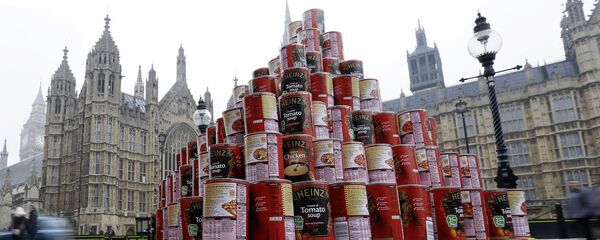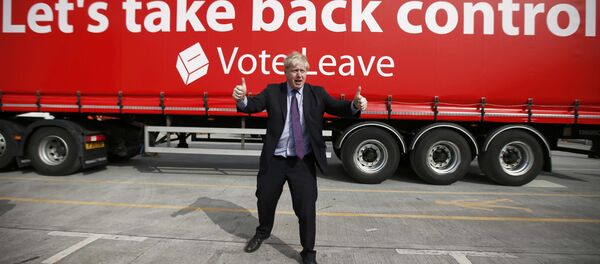Kristian Rouz — A new study by a Nobel-winning economist has found that the British economy is headed towards greater polarisation of disposable incomes across its societal strata, threatening hazardous wage stagnation for the less-educated workers and low-income households.
This process could reduce consumer confidence in the long-term perspective and undermine broader GDP expansion for decades ahead.
The study found that years of fiscal austerity, tepid economic growth, and trade deficits, among other things, have resulted in the UK's income inequality index approaching US levels — leaving Britain's European peers behind.
According to the OECD Inequality scale, referenced in the report, the UK's wealth disparity stands at 0.351 points — compared to 0.39 in the US. The UK is followed by the economically-struggling Greece with inequality index of 0.333.
READ MORE: Lawyer Explains Ruling That Germany Can Return Asylum Seekers to Poor EU States
Advanced European economies, such as Germany, France, and Norway, have disparity indices of 0.293, 0.291, and 0.26, respectively.
"Deepening economic and social divides have led some to question whether inequality will lead to a crisis of capitalism", Sir Angus wrote in the report.
Professor Deaton points out that growing inequality poses political challenges as well, as the British public is seeking answers to difficult questions. One of these is why an average household is now £17 per week (inflation-adjusted) poorer than just a decade ago, while financial sector workers are £120 per week better off on average.
"With support for populist candidates rising on both sides of the Atlantic, and on both sides of the political spectrum, some question whether inequality may pose a threat not just to capitalism but also to our democratic system", Deaton wrote.
The British public is growing increasingly disenchanted with the flaws of the UK's political system amid the prolonged Brexit process, immigration challenges, and the tidal wave of despair among its low-income communities.
READ MORE: 'Britain Is Broken' Rally to Demand Snap Elections, End to Austerity — Activist
In this light, many Labour voters have opted to vote for the populist-right UKIP and the newly-formed Brexit Party — while some Tories who split from their own party and turned to independents looking for a decisive change in the political discourse.
"People really feel that not everybody is having a fair crack anymore", Professor Deaton wrote.
Rising inequality is seen as a destabilising factor when it comes to politics. Poverty is the main enemy of a sustainable representative democracy, as a poor voter tends to support those promising greater immediate benefits — either in the form of welfare, guaranteed minimum income, or the so-called Modern Monetary Theory (MMT), which allows indefinite accumulation of debt without the intent of paying any of it back.
Deaton also pointed to the lack of investment in the non-financial sector, which hinders market-based redistribution of wealth. Many so-called "one-percenters" prefer extracting passive income from investment in stocks, bonds, and properties, rather than riskier ventures such as factories, farms, and railways.
Such investments create far fewer jobs than necessary to enhance the quality of life for the majority of population.
READ MORE: Save Scotland From the British Union — Not Britain From Brexit
"I think that people getting rich is a good thing, especially when it brings prosperity to others", Sir Angus said. "But the other kind of getting rich, ‘taking' rather than ‘making', rent-seeking rather than creating, enriching the few at the expense of the many, taking the free out of free markets, is making a mockery of democracy".
In this light, Downing Street and the Bank of England (BOE) are facing a puzzle of how to boost disposable incomes and bring down the costs of living, while also ensuring stable inflation and GDP growth. So far, British officials have considered redistributive policies — which some argue don't work, highlighting the urgent need for a brand new approach to fiscal and monetary policies.





